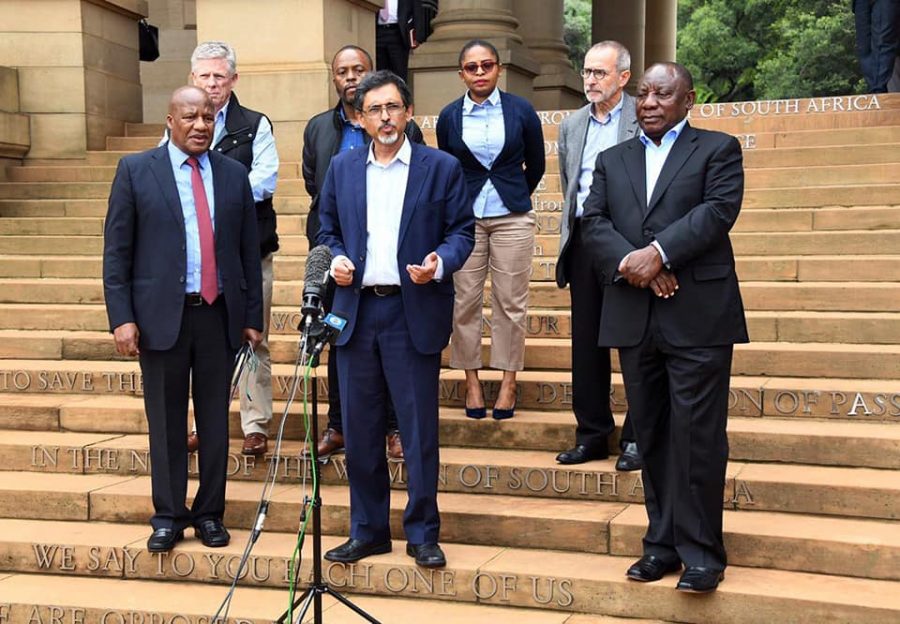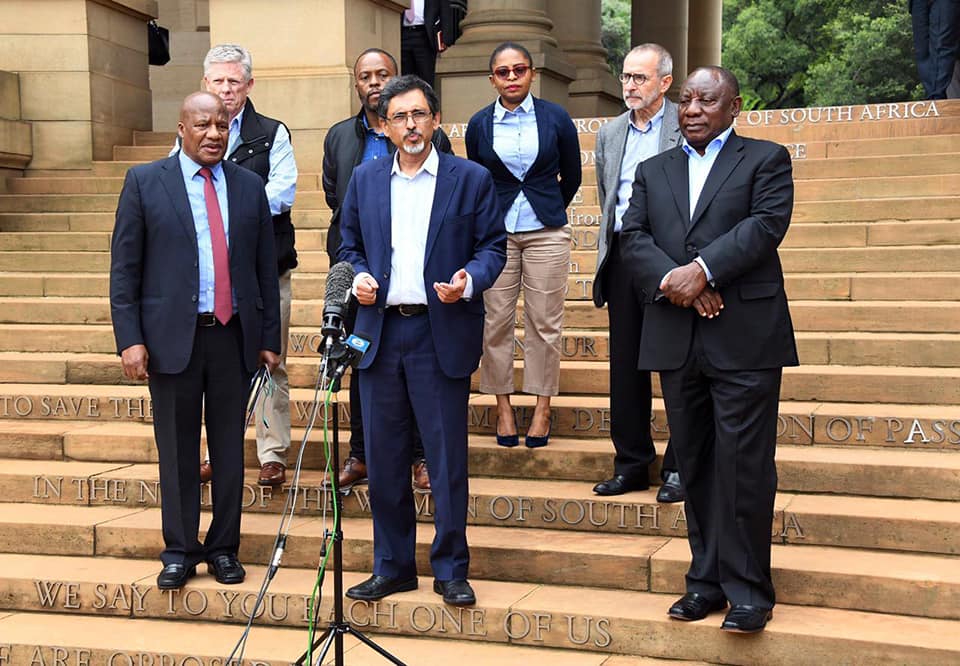
Businesses Put South Africa First to Commit Resources To COVID-19
The South African business community has mobilised to combine its resources as a way of limiting the economic, social and health impact of COVID-19 on the country. This emerged at the discussions held by President Cyril Ramaphosa and the country’s business formations on Sunday. Business Unity South Africa (BUSA), the Black Business Council (BBC) and […]

The South African business community has mobilised to combine its resources as a way of limiting the economic, social and health impact of COVID-19 on the country.

This emerged at the discussions held by President Cyril Ramaphosa and the country’s business formations on Sunday.
Business Unity South Africa (BUSA), the Black Business Council (BBC) and other companies and business associations, have established a Project Management Office aimed at ensuring collaboration with government, and to use the available business resources and capacity to support public sector initiatives.
“In a unique collaboration across public and private sectors, this will see business being aligned with government in putting the needs of South Africa first,” said BUSA in a statement issued after the meeting.
Task teams are expected to proactively assess and implement business initiatives to deal with the impact of COVID-19 on health, the labour market and the broader economy — all three of which will be assisted by a communications task team.
The health work stream is focused on mobilising resources to contribute to COVID-19 tracing, tracking, testing, monitoring and pathology labs; communicating around COVID-19; hospital responses and Personal Protective Equipment (PPE), medicines and medical devices; and support the National Health Department with capabilities to enable more specific demographic resource deployment.
The economic work stream will, inter alia, identify critical sectors in the national response; help develop policy and industry specific interventions, including tax and loan relief; ensure security of critical supplies and energy; model the economic impact of COVID-19 and combat predatory pricing, rent seeking and panic buying.
To tackle the impact of the necessary quarantines and lockdowns and the subsequent substantial decline in consumer activity, other areas the team is working on, include:
- Mitigating the risks of inconsistent electricity supply and other infrastructural constraints;
- Assessing the impact on technology, media and telecommunications services and networks, given the urgency for remote working;
- Mitigating the risks from the public transport system and identifying alternative mass commuter services; and
- Identifying necessary import substitution requirements and optimising local manufacturing accordingly’.
The labour work stream will look at the impact of COVID-19 on employers and employees; developing advice on issues such as short working hours, Unemployment Insurance Fund (UIF) claims and special leave.
It will identify and address blockages such as seeking adjustments to the Disaster Management Regulations and other aspects of the regulatory framework. It will also be encouraging good practise to preserve and support employees; environment and workplace hygiene, and collaboration with regulators especially in high risk sectors.
Business leaders say they unreservedly support the Presidency and the recently established National Command Council. It is working closely with the national Departments of Health, Employment and Labour, and Trade and Industry, as well as in the National Economic Development and Labour Council (Nedlac).
BUSA’s vice president Martin Kingston said: “Desperate times demand desperate measures. We have embarked on this major collaboration – among South African businesses and with government – to share best practice, reduce risk wherever possible, and implement practical measures to ease the hardships caused by this global catastrophe.
“We will see through this pandemic by preparing effectively, adapting where necessary and acting decisively.” – SAnews.gov.za
